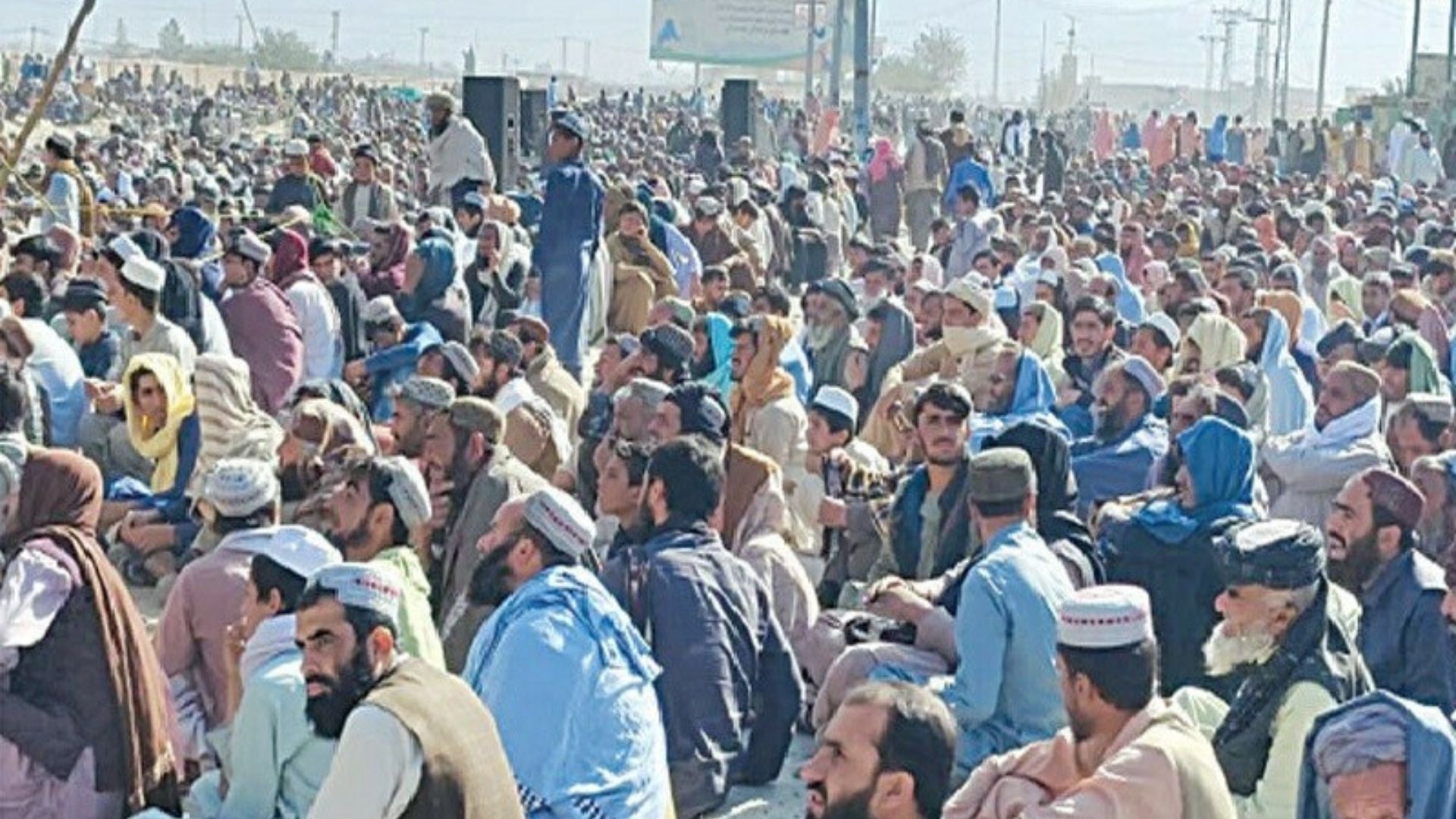Following ongoing demonstrations against the closure of borders and the imposition of the One Document Regime (ODR) for travel between Pakistan and Afghanistan, all national highways in Pakistan were blocked in solidarity with traders and daily wage earners in Chaman district, Balochistan. This blockade resulted in Balochistan being disconnected from the rest of the country on Tuesday.
The Tehreek-i-Tahafuz Ayeen-i-Pakistan (TTAP), a six-party opposition alliance, called for the highway blockades in support of participants of the Chaman sit-in, which began in October last year. The protesters demand the withdrawal of the new border crossing condition requiring passports and visas, advocating for a return to the old system allowing travel with Pakistani National Identity Cards and Afghan ID Cards (Teskera).
Various highways, including Quetta-Chaman, Quetta-Zhob, Quetta-Dera Ghazi Khan, and Quetta-Karachi, as well as roads connecting Balochistan with Karachi, Punjab, and Khyber Pakhtunkhwa, were closed due to barricades and boulders placed by TTAP workers and supporters, disrupting all traffic.
This situation left hundreds of vehicles stranded, including passenger coaches, buses, and trucks carrying import and export goods. The closure of the Quetta-Chaman highway also impacted Afghan transit trade, further complicating the situation.
Despite the challenges faced by travelers, including women and children, due to extreme weather conditions, the highway blockades were lifted by TTAP workers later in the evening, leading to the restoration of traffic. Fortunately, no major incidents were reported during this period of highway closures in Balochistan.























